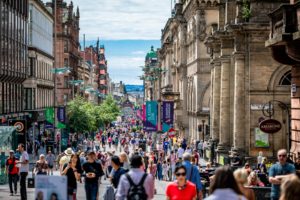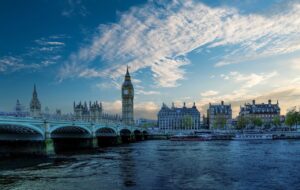Glasgow’s citizens’ climate assembly to meet this week
Glasgow’s citizens’ climate assembly will meet for the first time this week.
The assembly, which is being facilitated by market research company Ipsos MORI in conjunction with Glasgow City Council will involve a randomly selected representative group of 50 residents from across the city.
Meeting five times across August, assembly members will be presented with evidence from policy experts on various subjects.
They will then be asked to discuss how Glasgow can tackle the climate emergency by 2030, sharing their views on aspects of the transition to net-zero carbon that will most impact them.
A report detailing the member’s priorities and recommendations will then be presented to Cllrs before the start of COP26, which begins on 31 October in the city this year.

Leader of Glasgow City Council, Susan Aitken said: ‘Climate change is increasingly relevant to the lives of ordinary Glaswegians.
‘How the city adapts to it over this next critical decade will have major ramifications for our economy, jobs, the look and feel of our neighbourhoods, heating our homes and travelling around.
‘It’s essential then that we listen directly to our citizens on their understanding of the challenges and opportunities ahead, what climate change means to them now and may do in the future.
‘We want to hear how taking action on climate can make lives, communities and businesses better – and how the city together supports that.
‘COP26 and its legacies have the potential to define Glasgow for the decades ahead, with our Climate Plan setting out how the city addresses global warming. But all this must happen with our people and for our people, not simply to them.
‘The Citizens’ Assembly is a real opportunity for Glaswegians to start shaping a fairer, healthier and more prosperous future.’
In related news, in episode one of the Environment Journal Podcast, host Stephen Cirell interviewed Rebecca Willis, the expert lead for the Climate Assembly UK.
Photo by Artur Kraft















